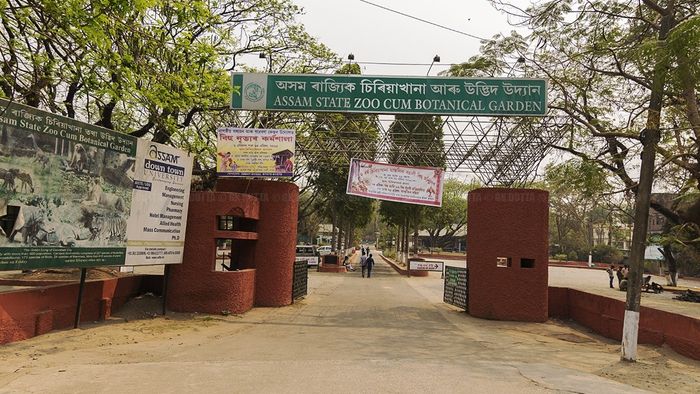Assam zoo installs fans, coolers to protect animals from soaring temperatures
Along with tigers, other animals are also receiving care through electric fans, coolers, and improved hydration facilities.

- Jul 24, 2025,
- Updated Jul 24, 2025, 12:20 PM IST
As Guwahati endures scorching temperatures and flash floods, authorities at the Assam State Zoo and Botanical Garden are working to protect both wildlife and public life amid challenging weather conditions.
Rajani Kanta Deka, Chief Animal Keeper at the zoo, confirmed that a series of heat-relief measures has been rolled out to ensure animal welfare. “We have constructed a big bathtub for tigers. There are 7 tigers in the state zoo, and we have put electric fans in the cages. We have also installed air coolers, air conditioners (ACs), and showers for animals,” he said.
Along with tigers, other animals are also receiving care through electric fans, coolers, and improved hydration facilities. Deka noted that all animals are currently in good health and feeding regularly despite the extreme heat.
The India Meteorological Department (IMD) has forecast a partly cloudy sky for Guwahati with brief spells of rain or thundershowers. The maximum temperature is expected to reach 37°C, with a minimum of 27°C. No weather warnings have been issued for the day.
While the zoo fights the heat, other parts of the city are grappling with heavy rainfall and severe waterlogging. Continuous downpours have disrupted transportation and day-to-day life in several areas of Guwahati.
The situation follows earlier warnings from Assam Chief Minister Himanta Biswa Sarma, who advised residents in low-lying and riverbank areas to stay alert. In a post on 'X', the Chief Minister said, “Assam is already witnessing intense rain in Silchar (42 cm), Karimganj (35 cm), Hailakandi (30 cm) and in nearby areas. People in low-lying and riverbank areas are advised to stay alert and follow local advisories. Stay safe, stay prepared.”
In response to the worsening flood situation, the Indian Air Force has launched a Humanitarian Assistance and Disaster Relief (HADR) mission in Assam and Arunachal Pradesh. The operation began after several individuals were stranded in the middle of a flooded river in Arunachal Pradesh.
As both extreme heat and flooding grip the state, authorities continue to monitor the evolving situation and implement emergency measures where needed.